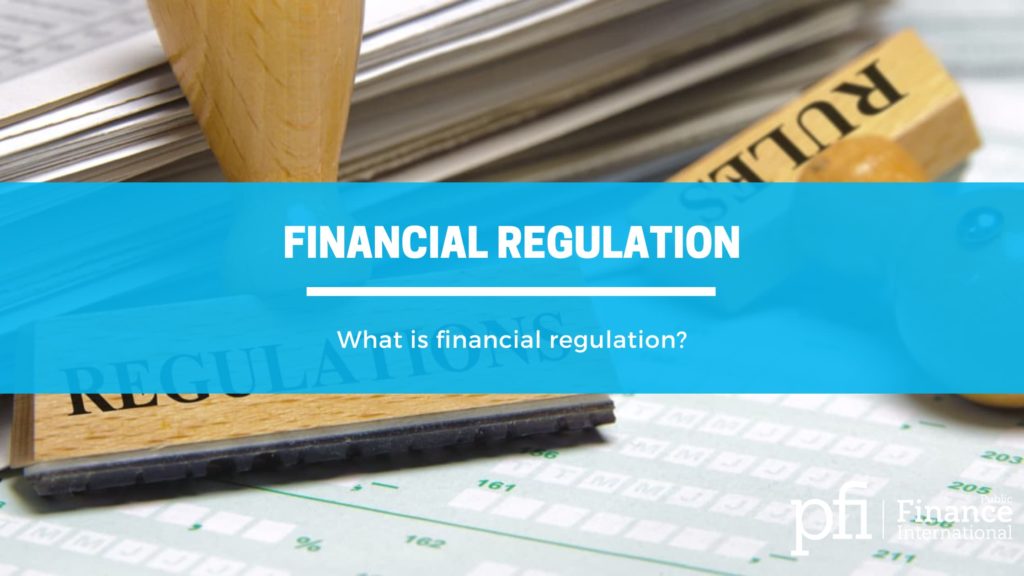Financial regulation is the process of governing financial institutions and markets through rules and laws. Financial regulation aims to protect consumers, investors, and creditors from abusive or fraudulent practices, promote market stability, and prevent another financial crisis. Financial regulation can take many forms, including laws, rules, regulations, guidelines, and supervisory actions.
Financial regulators are non-government or government agencies responsible for issuing and enforcing regulations governing financial institutions and markets. Many financial institutions exist, including banks, insurance companies, securities firms, and investment funds. Each type of financial institution is subject to different kinds of regulation.
Financial regulators are organizations like the Financial Industry Regulatory Authority or the Securities and Exchange Commission tasked with implementing and enforcing these rules.
The field of financial regulation is one of three legal categories that make up financial law, along with market practices and case law.
Financial regulators are established to keep an eye on and regulate various aspects of the financial system to safeguard customers and the economy.
Aims Of Financial Regulation

The aims of financial regulation vary depending on the country. Still, they typically include protecting consumers, maintaining the financial system’s stability, and ensuring that firms operate fairly and transparently.
One of the critical aims of financial regulation is to maintain market confidence. This is important as it helps to ensure that investors continue to invest in the financial markets, which in turn helps to promote financial stability and economic growth. Financial regulation can also help to protect consumers by ensuring that banks and other financial institutions adhere to specific standards, which helps to ensure that consumers are not taken advantage of.
By ensuring that firms operate within certain parameters and adhering to specific rules, financial regulators hope to create an environment where businesses can flourish without posing a risk to the broader economy.
What Role Do Financial Regulators Play?
One key aspect of financial regulation is creating and enforcing rules governing the financial activity. These rules cover various topics, such as lending standards, consumer protection, investment restrictions, and market manipulation. Financial regulators also ensure that financial institutions comply with these rules and enforce penalties for those who don’t.
Financial regulators also play a role in monitoring the overall health of the financial system. They keep tabs on asset prices, credit availability, and systemic risk. When necessary, they take action to prevent problems from spreading or occurring. It can include requiring banks to hold a certain amount of capital, prohibiting certain activities, and mandating the disclosure of information. Financial regulation can also be made internationally through organizations like the IMF or World Bank.
What Does Financial Regulation Mean For Investors and Businesses?

Financial regulation means that consumers are protected from unfair or deceptive business practices. This includes hidden fees, fraudulent activities, or other schemes that could take advantage of consumers. Financial regulation also helps to ensure that consumers have access to essential financial products and services, like checking and savings accounts, credit cards, and mortgages.
Financial regulation means businesses and brokers must follow specific rules and guidelines when offering products and services to consumers. This includes disclosing any risks associated with a product, getting customer consent for certain activities, and abiding by certain limits on how much interest businesses can charge on loans. Financial regulation also helps to create a level playing field for businesses so that all companies are held to the same standards.
Criticisms
Financial regulation has come under increased scrutiny in recent years due to the global financial crisis. Many people believe that financial regulation did not do enough to prevent or mitigate the financial crisis. As a result, there have been calls for greater regulation of the financial system. However, it is essential to note that financial regulation is just one tool that can be used to protect the integrity of the financial system, ensure the financial system’s stability, and safeguard the interests of consumers and investors. Financial regulation is not a solution for all financial difficulties and cannot always prevent or mitigate financial crises. However, financial regulation can help reduce the risk of financial problems and contain their effects.




